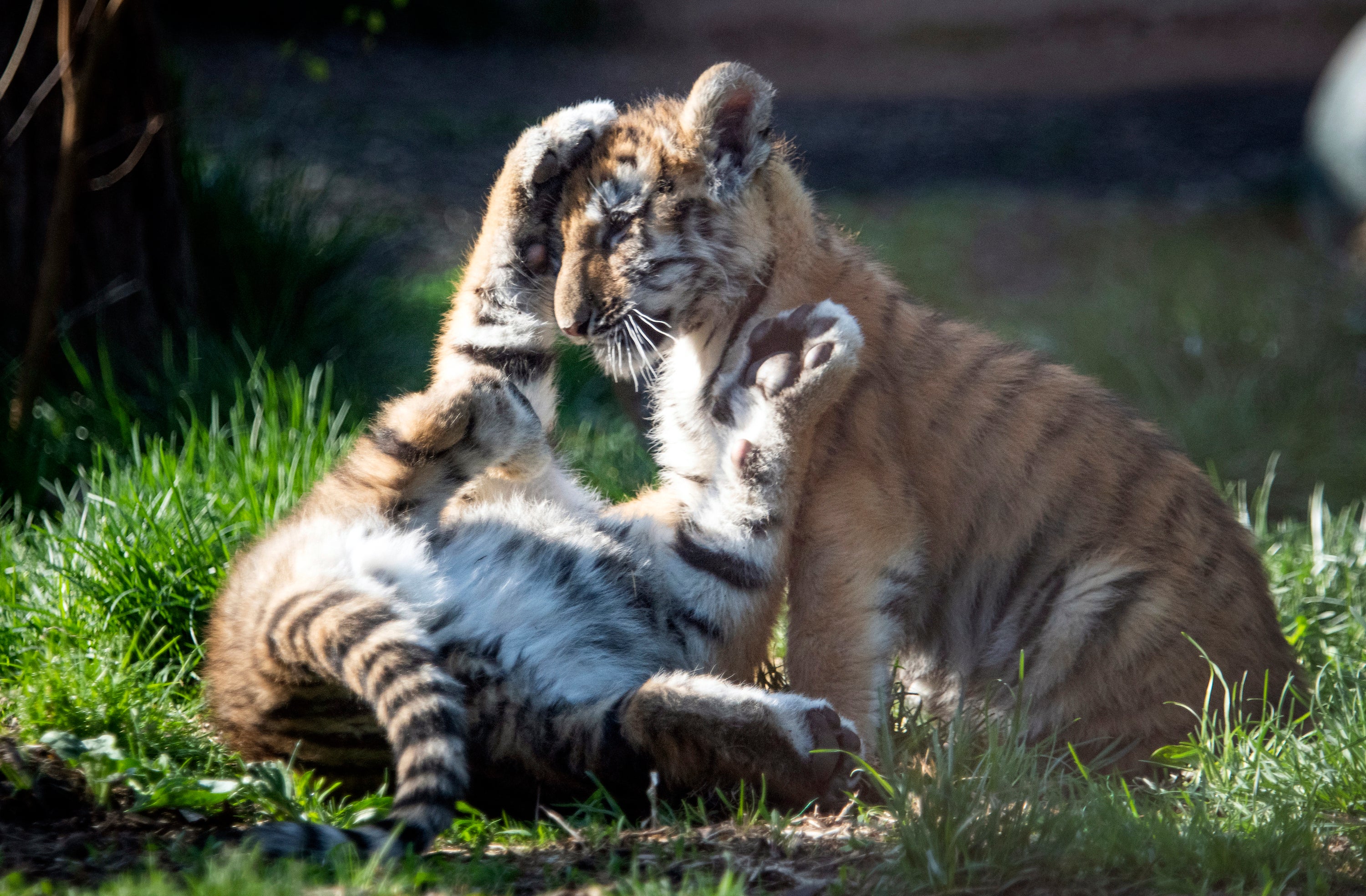Endangered tiger cubs make first public appearances at zoo
Three endangered tiger cubs are making their first public appearances at the Cleveland Metroparks Zoo

Your support helps us to tell the story
From reproductive rights to climate change to Big Tech, The Independent is on the ground when the story is developing. Whether it's investigating the financials of Elon Musk's pro-Trump PAC or producing our latest documentary, 'The A Word', which shines a light on the American women fighting for reproductive rights, we know how important it is to parse out the facts from the messaging.
At such a critical moment in US history, we need reporters on the ground. Your donation allows us to keep sending journalists to speak to both sides of the story.
The Independent is trusted by Americans across the entire political spectrum. And unlike many other quality news outlets, we choose not to lock Americans out of our reporting and analysis with paywalls. We believe quality journalism should be available to everyone, paid for by those who can afford it.
Your support makes all the difference.Cubs from two subspecies of endangered tigers made their public debut on Wednesday at the Cleveland Metroparks Zoo.
Amur tiger cubs named Luka and Anya were born at the zoo in December. A Malayan tiger cub named Indrah was also born in December at a zoo in Tulsa Oklahoma
Raising the two subspecies together will help them develop after their mothers would not care for them, zoo officials said. Indrah was brought to Cleveland after a recommendation from the Tiger Species Survival Plan.
Amur tigers, also known as Siberian tigers, are found in the far east of Russia and northeast China and are considered endangered. Malayan tigers are found in the Malaysian peninsula and are critically endangered.
Only a few hundred animals for both species remain in their native regions, zoo officials said. The cubs weigh about 30 pounds (13.6 kilograms) each and have transitioned to a meat diet.
Zoo visitors can see the tigers between 10 a.m. and noon daily as they transition to their habitat.